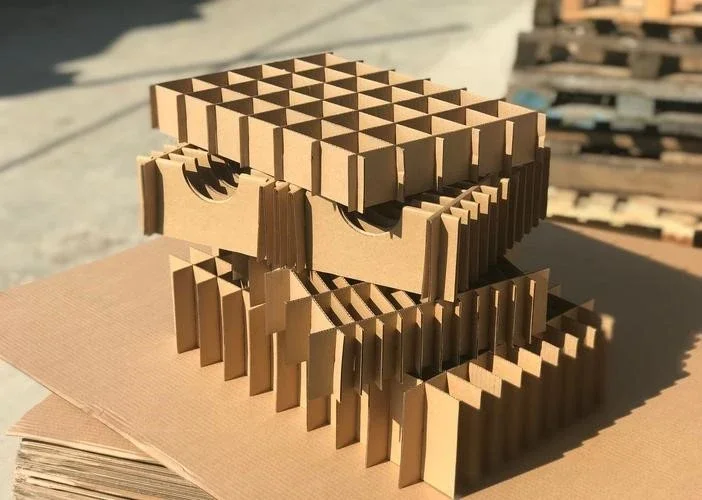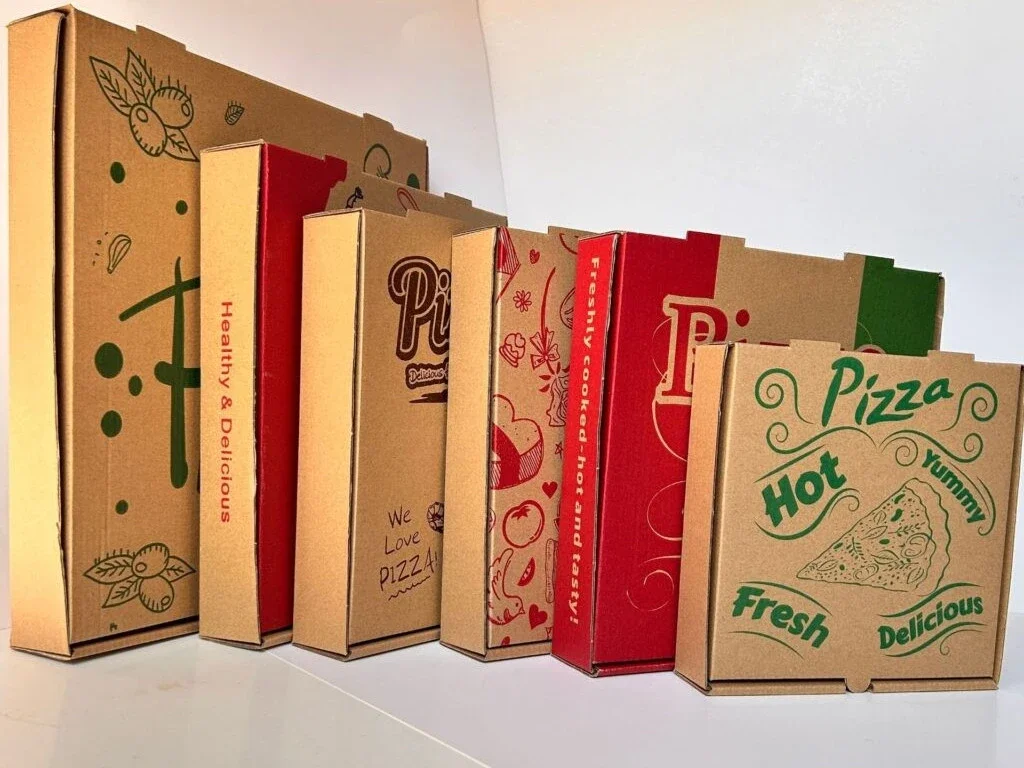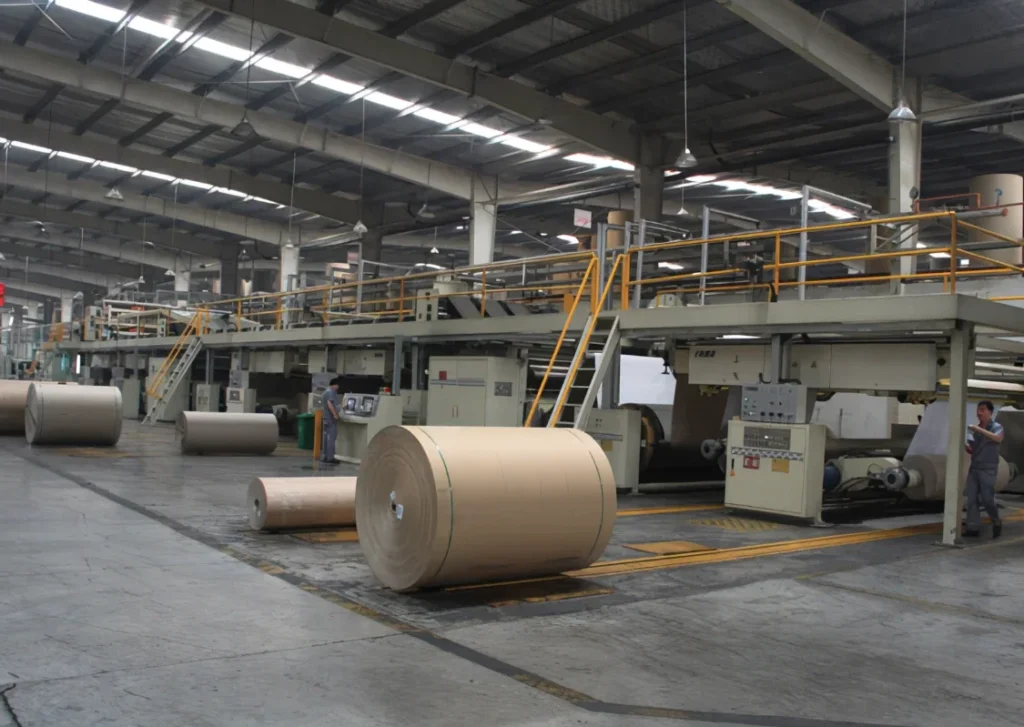Introduction: Why Understanding the Cost Matters
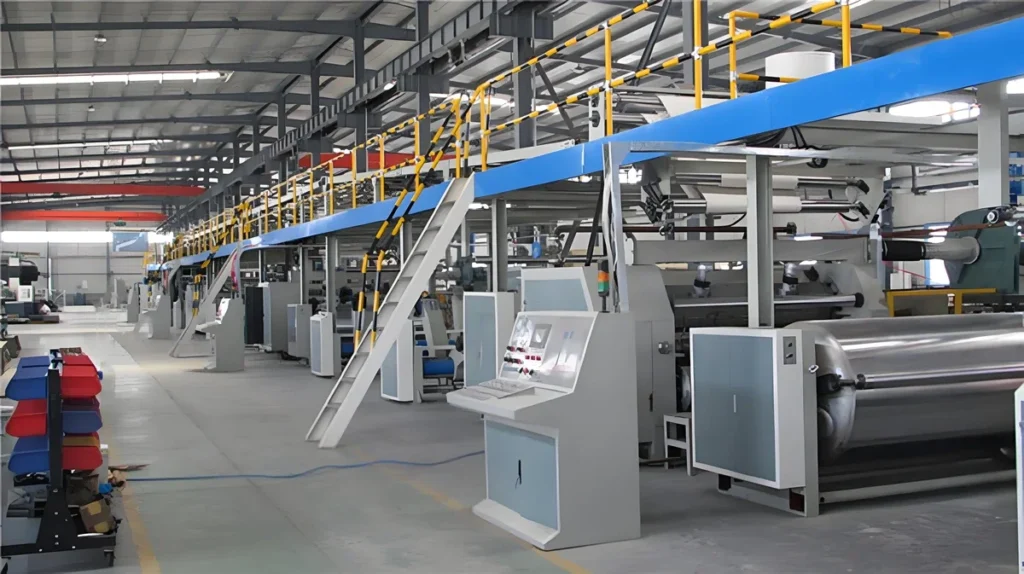
Setting up a carton box manufacturing plant in India is an exciting opportunity with strong demand from sectors like e-commerce, FMCG, agriculture, and pharmaceuticals. However, understanding the true cost of establishing such a facility is essential before taking the first step. This blog aims to give you a clear, data-backed overview of what it takes — financially and operationally — to start a carton box production business in India.
1. Initial Investment Breakdown
a) Land and Building Cost
The cost of land varies significantly depending on location. In industrial zones or Tier 2/3 cities, prices are generally lower. For example:
- Tier 2/3 cities: ₹800–₹2,000 per sq. meter
- Metropolitan areas: ₹3,000–₹10,000+ per sq. meter
A medium-sized carton plant typically requires 8,000–15,000 sq. ft. of covered area. Including land and basic infrastructure (power, water, flooring, shed), the cost can range from:
- ₹20–₹80 lakhs ($25,000–$100,000)
b) Machinery and Equipment
This is the core of your investment. Costs vary based on machine type, automation level, and production capacity.
| Machine Type | Estimated Cost (INR) | Remarks |
|---|---|---|
| Manual/Basic Machines | ₹3–₹6 lakhs | For small operations |
| Semi-Automatic Machines | ₹8–₹15 lakhs | Suitable for startups |
| Fully Automatic Box Making Line | ₹20–₹50 lakhs+ | For higher volume, better consistency |
| Corrugated Sheet Production Line | ₹80 lakhs – ₹3 crores+ | For in-house board making |
2. Operating Costs: What You Need to Budget For
Once the plant is established, daily and monthly operational expenses become key. These affect both your break-even point and long-term profitability.
a) Labor Costs
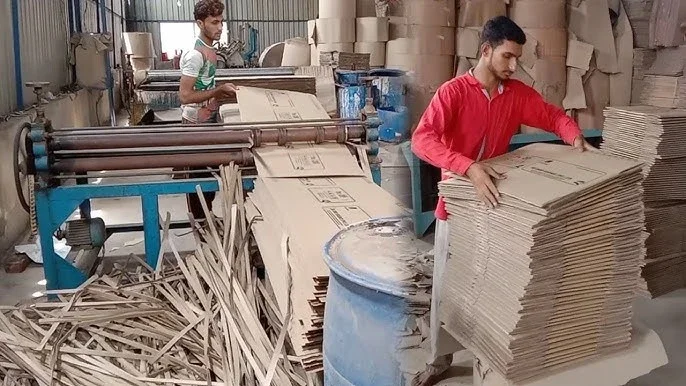
Labor is relatively affordable in India, though wages vary by region and skill level.
- Unskilled labor: ₹10,000–₹15,000/month
- Skilled machine operators: ₹18,000–₹30,000/month
- Supervisors/Managers: ₹35,000–₹60,000/month
A small plant typically requires:
- 4–6 production workers
- 1–2 supervisors
- 1 admin/sales assistant
Monthly payroll estimate: ₹1.2 – ₹2.5 lakhs
📌 Source: India Skill Report 2024 by Wheebox
b) Electricity and Utility Costs
Carton machines, especially corrugators, are power-intensive. Key factors influencing power bills:
- Connected load: 25–100 kW for small to mid-sized plants
- Tariff: ₹7–₹10 per kWh (depending on state and industrial slab)
Monthly electricity bill: ₹25,000–₹1,00,000
Water and other utilities add another ₹5,000–₹10,000 per month.
c) Raw Material Costs
The core input is kraft paper. India imports a portion of it, which impacts cost based on global trends.
- Local kraft paper: ₹25–₹40 per kg
- Imported kraft paper: ₹35–₹55 per kg (CIF basis)
- Glue, stitching wire, printing ink: ₹5–₹10 per box
For a mid-sized plant producing 5,000–10,000 boxes/day, monthly raw material spend may range:
₹8–₹20 lakhs/month
📌 Source: [PAPEREX and IPPTA industry reports, 2023–2024]
d) Maintenance and Spare Parts
Preventive maintenance is key for machine uptime.
- Annual maintenance: ₹1 – ₹3 lakhs
- Spare parts (gears, belts, motors): ₹50,000 – ₹2 lakhs/year
Choosing machines from established brands may reduce breakdown risk and long-term cost.
e) Packaging and Delivery Costs
Boxes are bulky but lightweight, so transportation plays a big role.
- Local logistics (per km): ₹5–₹8/km (small trucks)
- Packaging for dispatch: ₹0.50 – ₹2 per box
These vary with customer location and order size.
3. Profitability & Return on Investment (ROI)
Once the plant is up and running, it’s important to estimate your potential returns.
Example Case: Medium-Scale Setup
- Daily production: 10,000 boxes
- Avg. selling price: ₹7–₹12/box
- Monthly revenue: ₹25–₹30 lakhs
- Operating costs: ₹15–₹20 lakhs
Net profit margin: 15%–25% (depending on efficiency and waste control)
Payback period: 18–30 months for most setups
4. Location Considerations
Where you set up your plant impacts cost, compliance, and customer access.
| Location Type | Pros | Challenges |
|---|---|---|
| Tier 2/3 Cities | Lower land & labor cost, incentives | Limited access to ports/logistics |
| Industrial Parks | Power, water, permissions pre-arranged | Slightly higher lease cost |
| Urban/Peri-urban | Customer proximity, talent availability | High land and compliance cost |
Some states offer subsidies or incentives through MSME or industrial development boards — such as Gujarat, Maharashtra, Tamil Nadu, and Telangana.
📌 Check: MSME India or state SIDC portals
5. Compliance, Licensing & Certifications
To operate legally, you must secure the following:
- Factory License (from local labor department)
- GST Registration
- Pollution Control Board Clearance (especially if you use printing ink or adhesives)
- Udyam Registration for MSME benefits
- Fire Safety & Electrical Approvals
Cost for compliance setup: ₹50,000–₹2 lakhs depending on location
6. Financing Options & Government Support
Financing options include:
- Term loans from banks or NBFCs (8–12% interest typical)
- Mudra Loan Scheme (for smaller setups under ₹10 lakhs)
- Credit Guarantee Fund Scheme for MSMEs
- Capital subsidy schemes (state-specific)
A detailed project report (DPR) and a solid business plan improve your chances for approval.
📌 Reference: SIDBI India – MSME Financing
7. Common Challenges in Setting Up a Carton Box Plant (and How to Overcome Them)
Establishing a carton box manufacturing plant in India comes with its own set of practical challenges. Below are the most common hurdles investors and entrepreneurs face — along with proven ways to solve or avoid them.
1. Underestimating Working Capital Requirements
Problem: Many new businesses focus solely on machine purchase and setup, but neglect to allocate enough funds for operating expenses like raw material stock, staff salaries, and utilities.
Solution: Prepare a financial model that includes at least 3–6 months of working capital buffer post-installation. This ensures cash flow stability during the initial ramp-up period.
2. Choosing the Wrong Machinery
Problem: Buying overpowered or underperforming machines can result in wasted investment or production bottlenecks.
Solution: Base your equipment choice on your actual demand forecast, box types, and available workforce. Always request machine demos and technical documentation before purchase.
3. Delays in Government Approvals & Compliance
Problem: Licensing, GST registration, and environmental clearances can take longer than expected, delaying your launch.
Solution: Engage a local consultant or chartered accountant familiar with factory setups. Start paperwork early and track approval timelines closely.
4. Inconsistent Raw Material Supply
Problem: Kraft paper prices and availability can fluctuate due to import dependency and market demand.
Solution: Build long-term relationships with multiple paper suppliers. Consider bulk purchasing or advance contracts to lock in stable pricing.
5. Poor Machine Installation and After-Sales Service
Problem: Incorrect installation can lead to frequent breakdowns. Some machine suppliers offer little or no local support.
Solution: Partner with brands that provide reliable installation, training, and long-term support. Always verify service track record and spare parts availability before buying.
6. Labor Shortage or High Turnover
Problem: Untrained or inconsistent labor can lead to quality issues and production delays.
Solution: Hire locally and invest in basic machine training. Offer incentives to retain trained operators and reduce attrition.
7. Low Initial Demand or Marketing Gaps
Problem: Even with full production capacity, some plants struggle with customer acquisition in the early months.
Solution: Start customer outreach and sampling before your plant is fully ready. Target local packaging users like FMCG, fruits, e-commerce, and auto parts sectors.
8. Overlooking Plant Layout and Workflow
Problem: Poor floor planning leads to inefficient material movement and wasted time.
Solution: Design your plant layout with a consultant or experienced factory planner. Use a linear flow (raw material in → finished goods out) to optimize space and productivity.
By anticipating and solving these common problems early on, your plant is more likely to launch smoothly and scale effectively in a competitive market.
Final Thoughts
Building a carton box manufacturing plant in India is a capital-intensive but scalable opportunity. By understanding real-world costs, planning wisely, and investing in reliable machinery and people, you can achieve sustainable growth and solid returns.
Need help choosing the right carton box machine for your factory?
👉 Contact us for expert support and factory-tested solutions.

